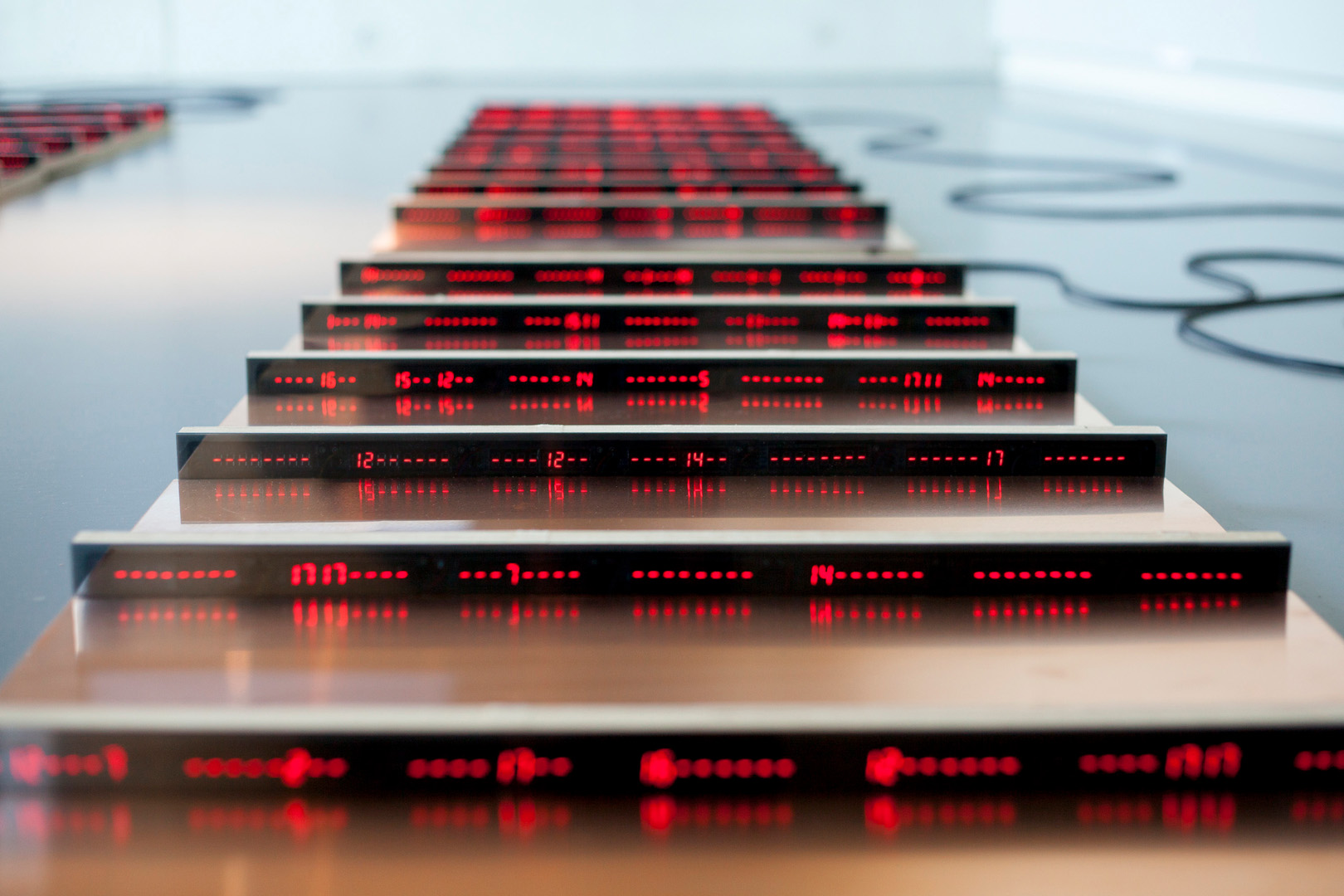“Critical Climate Machine: A Visual and Musical Exploration of Climate Misinformation through Machine Learning” by Nika and Robillard
Conference:
Type(s):
Title:
- Critical Climate Machine: A Visual and Musical Exploration of Climate Misinformation through Machine Learning
Session/Category Title:
- Face & Interface
Presenter(s)/Author(s):
Abstract:
Critical Climate Machine is a cutting-edge media art installation that critically exposes and quantifies mechanisms of climate change misinformation. Utilizing computational aesthetics across data, imagery, and sound, this work processes real-time data from X (Twitter) through a natural language processing learning model derived from cognitive sciences. It not only renders the statistical aspects of this data visually but also manifests its thermal effects. A unique audio dimension is introduced through dialogues between climate skeptics and climate advocates, processed by the generative machine learning (ML) algorithm Dicy2. These elements collectively shape the installation, each unveiling its distinctive algorithmic aesthetics and technical underpinnings. This paper concentrates on the dual application of ML algorithms: one for dissecting extensive online misinformation streams, and the other for creating climate-related dialogues. This dual approach opens a discussion on the mediation of climate, at the convergence of computational and physical realms. Our aim is to critically examine the role of ML technologies in crafting aesthetic experiences that resonate within scientific discourse and public debate on climate issues.
References:
[1] Emanuele Arielli. 2021. “Even an AI could do that”. In Artificial Aesthetics: A critical guide to AI, media and design. Manovich and Arielli, 26.
[2] Margaret A. Boden and Ernest A. Edmonds. 2019. From Fingers to Digits: An Artificial Aesthetic. MIT Press, Cambridge, MA.
[3] Travis G. Coan, Constantine Boussalis, John Cook, and Mirjam O. Nanko. 2021. Computer-assisted classification of contrarian claims about climate change. Scientific Reports 11, 1 (Nov. 2021), 22320. https://doi.org/10.1038/s41598-021-01714-4
[4] Jérôme Nika and Jean Bresson. 2021. Composing Structured Music Generation Processes with Creative Agents. In 2nd Joint Conference on AI Music Creativity (AIMC 2021). 12.
[5] Jérôme Nika, Ken Déguernel, Axel Chemla, Emmanuel Vincent, and Gérard Assayag. 2017. Dyci2 agents: merging the “free”, “reactive”, and “scenario-based” music generation paradigms. In International Computer Music Conference.
[6] Jérôme Nika, Augustin Muller, Joakim Borg, Gérard Assayag, and Matthew Ostrowski. 2022. Dicy2 for Max. Technical Report. Ircam UMR STMS 9912. https://hal.science/hal-03892611
[7] Geoffroy Peeters, Bruno L. Giordano, Patrick Susini, Nicolas Misdariis, and Stephen McAdams. 2011. The Timbre Toolbox: Extracting audio descriptors from musical signals. The Journal of the Acoustical Society of America 130, 5 (11 2011), 2902-2916. https://doi.org/10.1121/1.3642604 arXiv:https://pubs.aip.org/asa/jasa/article-pdf/130/5/2902/15297399/2902_1_online.
[8] Gaëtan Robillard, Caterina Calgaro, and Emmanuel Creusé. 2020. La vague dans la matrice. Rapport de recherche 2020:02. Université de Lille, Lille. https://hal.archives-ouvertes.fr/hal-03133380
[9] Bernard Stiegler. 2015. La Société automatique. 1. L’avenir du travail. Fayard, Paris
[10] María Celeste Wagner and Pablo J. Boczkowski. 2019. The Reception of Fake News: The Interpretations and Practices That Shape the Consumption of Perceived Misinformation. Digital Journalism 7, 7 (Aug. 2019), 870-885. https://doi.org/10.1080/21670811.2019.1653208 Publisher: Routledge.
[11] Johanna Walker, Gefion Thuermer, Julian Vicens, and Elena Simperl. 2023. AI Art and Misinformation: Approaches and Strategies for Media Literacy and Fact Checking. In Proceedings of the 2023 AAAI/ACM Conference on AI, Ethics, and Society(AIES ’23). Association for Computing Machinery, New York, NY, USA, 26–37. https://doi.org/10.1145/3600211.3604715





